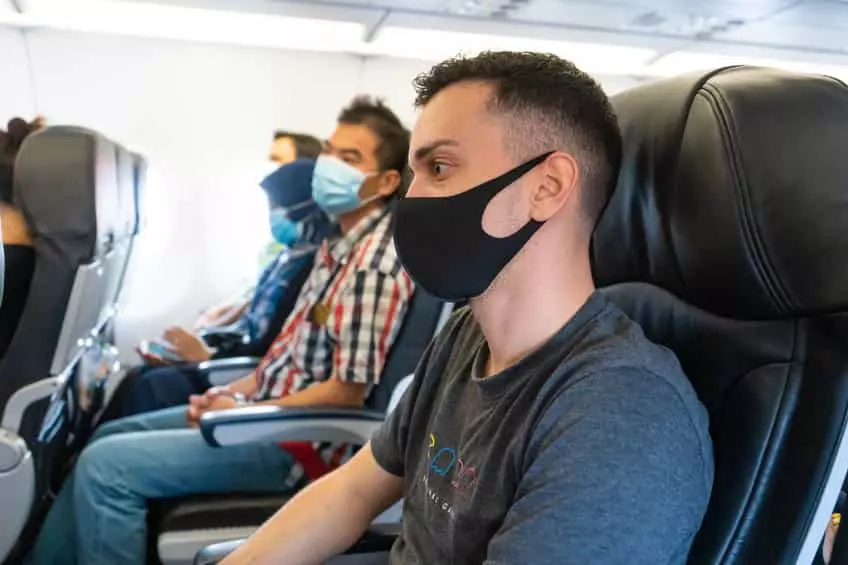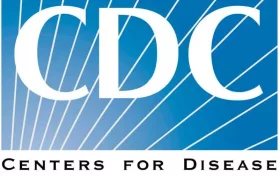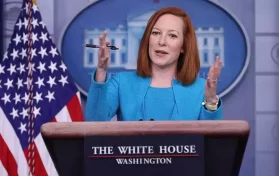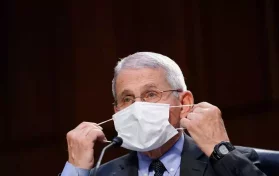
On Monday, a federal judge in a Florida court voided the Biden Administration’s mask mandate for those traveling on planes and trains. The mask mandate was originally a dictum handed out by the Centers for Disease Control, and it has been extended a number of times. Most recently, it was extended until May 3, but the judge’s order voided the directive.
The mask mandate affected individuals as young as two years old. Parents have lamented the task of masking toddlers, while many adults are simply tired of being forced to wear masks when COVID-19 numbers continually fall.
U.S. District Court Judge Kathryn Kimball Mizelle heard the case, which was brought by the Health Freedom Defense Fund, Inc. The organization was joined in the suit by individuals Ana Daza and Sarah Pope, both frequent travelers via plane. Judge Mizelle based her ruling on an interpretation of the Administrative Procedure Act.
She wrote that the mandate was “outside the scope of the CDC’s authority.” She added that the mandate was “arbitrary” and “capricious.” Mizelle cited the CDC for not “going through the required notice and comment period for federal rulemaking.”
Mizelle also cited the Public Health Services Act of 1944, which was said to be the basis of the mandate. According to this piece of legislation, the CDC is allowed to both make and enforce regulations such as this particular mask mandate when “necessary to prevent the introduction, transmission, or spread of communicalbe diseases from foreign countries into the United States.”
The Public Health Services Act reads that the CDC can do certain things, including inspecting, using fumigation to kill germs, destroy both animals and materials that are deemed to be able to pass such infection, and the agency may employ pest extermination in order to carry out protection of the public. However, the mask mandate does not fall under the description of sanitation as the Biden Administration claims, according to Judge Mizelle.
Mizelle went on to break down various meanings of sanitation as the Public Health Services Act reads. She said that “sanitation” as defined by the Act could include cleaning or taking preventative measures to prevent “something from getting infected or dirty,” but Mizelle determined that the definition as the law reads is more of the “cleaning” definition.
“The context of the statute indicates that sanitation and other measures refer to measures that clean something, not ones that keep something clean.” Mizelle added that wearing a mask means “nothing.”
Mizelle further elaborated that the reasoning of the CDC in attempting to utilize the Public Health Act of 1944 was “flawed,” as it refers to sanitation when it comes to property, not people.
Mizelle’s ruling also weakens the government’s stance that the CDC’s interpretation of the statute in regards to a landmark case – Chevron, USA v. Natural Resources Defense Council. Mizelle said this did not apply to the current mask mandate.
Mizelle said that the law as it is written is not ambiguous, so that the Chevron case does not have any relation to the mask mandate.
Further arguments put forth by the Biden Administration had to do with the “standard notice and comment process.” The administration said that there were exceptions regarding the process, but Mizelle ruled that these did not apply to the mandate. The administration had said that the mandate qualified for the “good cause exception,” but Mizelle said that the only argument the administration had put forth was the pandemic itself, but no specific reasons for the mask mandate.
Mizelle said that when the government issued the rule, the pandemic had already been going on for one year. The CDC had already announced that COVID-19 numbers were decreasing.
Almost immediately after the judgment was announced, United Airlines told its employees the company would still require masking until UA had “received guidance from the government on how to proceed.”





